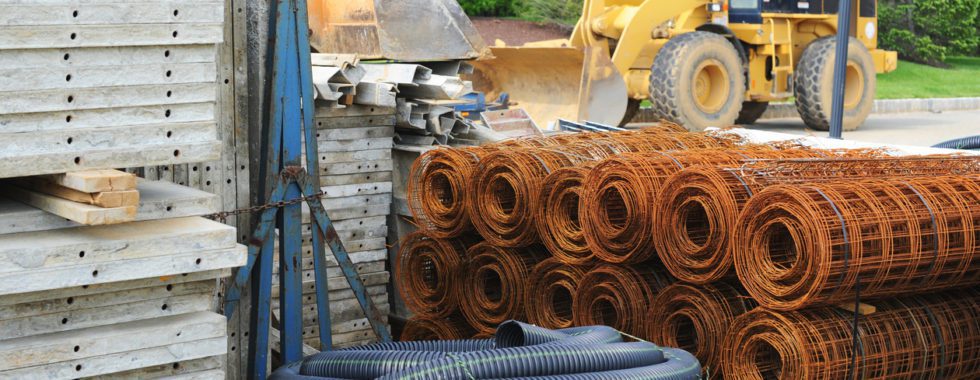
Inland Marine Insurance or Builders Risk?
There are numerous different insurance policies to pick from when you’re developing the insurance protection that’s ideal for your construction contractors business. Builders risk and inland marine are both essential insurance policies for contractors and subcontractors to think about, but they overlap in one primary area: each provides you with insurance coverage for your tools and equipment.
Knowing this, which type of insurance is going to work best for your business?
Builders Risk Insurance
Builders Risk insurance coverage, also referred to as course of construction insurance coverage, helps to protect a construction project from accidents and injuries as long as construction is being completed. This insurance coverage involves the building materials, construction supplies, and tools and equipment involved. Builders risk typically covers your business from incidents such as:
- Earthquake
- Fire
- Vandalism
- Theft
Builders risk insurance is commonly provided on a short-term policy period, running from three to twelve months, but these policy terms can be expanded if appropriate. Builders risk can also provide coverage for the materials used to do the job on the project while they are in transit or in storage, and this is where builders risk coverage can overlap with inland marine coverage.
Inland Marine Insurance
Inland Marine Insurance (tool coverage) covers all of your tools and equipment when you transport them to and from a project site. In the insurance biz, we call this a floater policy. That means the coverage goes wherever you go. Inland marine covers property that is in transit and property under the control of another person, such as:
- construction materials
- construction supplies
- tools and equipment
Inland marine insurance (also known as tools and equipment coverage), protects the power tools you transport them to and from the job site, as well as the tractor or other heavy equipment an employee may be using for the day. This is a vital insurance policy for contractors who are working on other people’s property on a regular basis.
Why use a name like Inland Marine?
If the insurance term “inland marine” sounds confusing, you’re probably not alone. It seems like it is something you need to cover a luxury yacht or sportfishing boat instead of a contractor’s tools and equipment. This insurance term is a very old one and dates back to the industrial revolution.
In those days, goods that had commonly been transported by ship began to be transported by rail and other land-based transportation. Marine Insurance companies extended their insurance coverage to provide Inland Marine Insurance for goods moved across land, and the definition of the term has broadened; as a result to refer to a form of property insurance covering goods in transit.
Which policy would My Contracting Business Need?
This apparent overlap between each policy can be rather perplexing. Both inland marine and builders risk insurance will provide coverage for tools and other property while in transit, but for distinctive reasons. Builders risk insurance is designed to cover short or long-term construction projects, while inland marine insurance provides coverage for your tools on a day-to-day basis.
If you’re a specialty contractor, handyman, or artisan tradesperson, or just part of a seemingly small contracting company, inland marine insurance will be an important component of your business insurance package. If you just work on a construction job or other project for a few days at a time and then move on, then it’s certainly crucial that your expensive tools and equipment are sufficiently insured.
Conversely, If you are a general contractor or project owner, you will probably need builders risk insurance each individual construction project you work on. In this instance, the insurance policy is providing protection for the construction project alone and the tools and equipment associated with it.
It’s important to note however, some builders risk insurance policies only cover damages done to the property, and may not cover your tools and equipment. Read through your builders risk insurance policy thoroughly- if it will not provide coverage for your equipment, you may need both types of coverage.
Here is What We Recommend
General Liability: Contractors General Liability will be the foundation of protection for your business. The coverage will respond if you or your employees are found liable for bodily injury, property damage, or have a products/completed operations complaint. The coverage also covers defense costs for your business to respond to any lawsuits brought by a third party.
Workers’ Comp: Many states will require contractors to provide workers’ compensation coverage for their workers before they can begin a project. Accidents will happen at the job site that can result in an employee becoming injured and missing work. Your workers’ compensation coverage will provide financial assistance for medical expenses and lost wages.
Surety Bonds: It’s very likely that your state will require you to be licensed before you can begin operations. Most states and customers will require contractors to offer a license or surety bond before you are allowed to bid on a job or begin working.
Commercial Auto: Typically, most contractors will have light and heavy vehicles that require commercial auto insurance to make certain their vehicles can be repaired or replaced in the event of an accident, vandalism, or theft.
Tool Coverage: Also known as Inland Marine Insurance, this policy will provide for reimbursement for expenses to repair or replace tools and equipment. Your tools represent an important part of your livelihood, so we always encourage carpentry contractors to consider this valuable coverage.
Get A Quote
For more information about protecting your tools and equipment at the job site, in transit, or in storage, call the Fairbanks Insurance Brokers at (949) 595-0284 during normal business hours on the west coast, or contact us through our website at your convenience.

